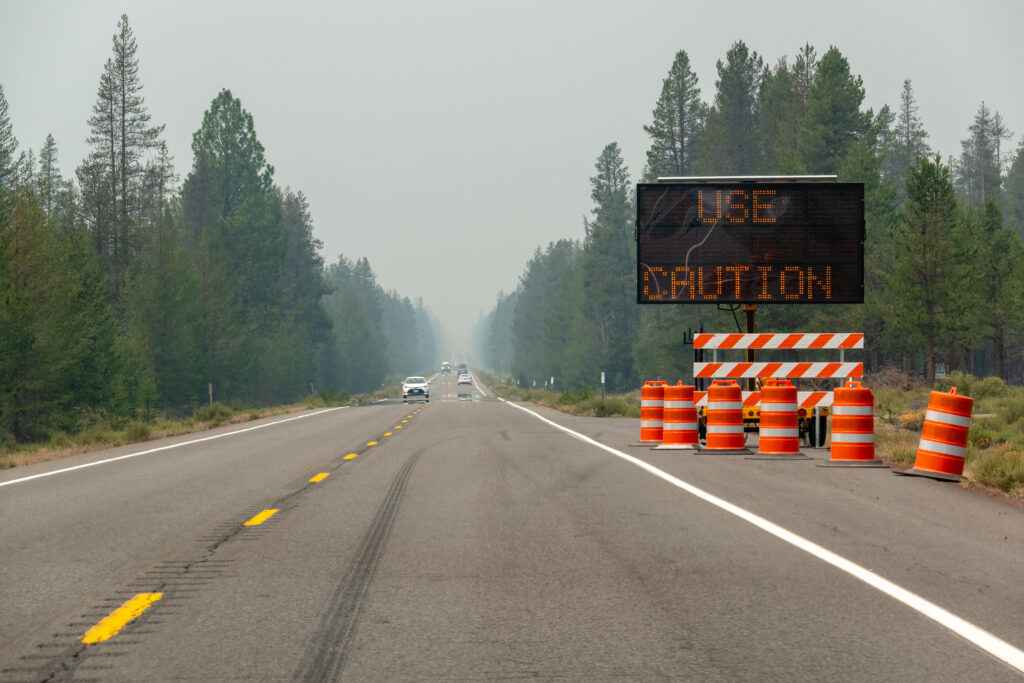Contributor Dr. Elise Herman
As climate change causes a longer and more severe wildfire season, exposure to wildfire smoke in children is an increasing problem. Wildfire smoke is felt to be more dangerous than typical air pollution and kids (especially those under 5 years) are more vulnerable for multiple reasons. Children’s smaller airways are more adversely affected by swelling and inflammation from smoke. Kids also breathe more rapidly than adults, thereby taking in more of the dangerous particles. Children who have underlying lung problems including asthma are at increased risk and are more likely to need medical care.
Children typically have coughing, sneezing, and increased congestion with wildfire smoke exposure. They may also have burning or discomfort of their eyes, nose, and throat. If there is more serious exposure, a child may become lethargic or have shortness of breath. Signs of trouble breathing in kids include breathing rapidly, the ribs sticking out with each breath (“retractions”), and the abdomen moving a lot with breathing (“belly breathing”). Babies may also have head bobbing and grunting as signs of respiratory distress.
Being aware of the air quality can guide your actions. Airnow.gov is a good site to check; if the AQI (air quality index) is over 150, avoid any outdoor activity if possible. Kids 2 years and over can wear a mask to somewhat reduce smoke exposure. NIOSH N95 or KN95 masks are 80-95% effective at reducing smoke exposure (depending on the fit of the mask) but do not come in sizes for younger kids. Surgical masks are only 20% effective and therefore are not ideal. Cloth masks really do not help filter smoke.
Here are steps child you can take to protect your child if there is wildfire smoke in your area :
Resources
more about The contributor

Dr. Elise Herman
Dr. Herman is passionate about community health outreach, school programs, and child/family health and wellness. She has more than 31 years of experience as a pediatrician in Ellensburg, Washington, the last 3 with KVH Pediatrics. In 2022 Dr. Herman mostly retired from practice and continues to contribute blog posts and remain a visible advocate for kids in the community.
